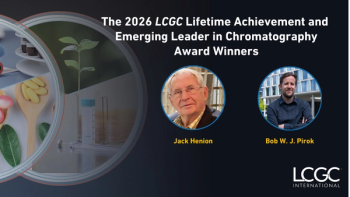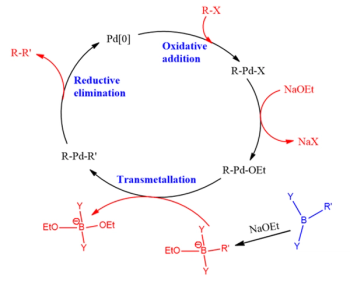
Martin F. Jarrold Receives 2022 EAS Award for Outstanding Achievements in Mass Spectrometry
Martin F. Jarrold, the Robert & Marjorie Mann Chair in the Department of Chemistry at Indiana University, is the winner of the 2022 Eastern Analytical Symposium (EAS) Award for Outstanding Achievements in Mass Spectrometry.
Martin F. Jarrold, the Robert & Marjorie Mann Chair in the Department of Chemistry at Indiana University, is the winner of the 2022 Eastern Analytical Symposium (EAS) Award for Outstanding Achievements in Mass Spectrometry. He will be presented with the award on Wednesday, November 16, in an award session at EAS in Plainsboro, New Jersey.
Jarrold received his PhD from the University of Warwick in the UK. He was a NATO Postdoctoral Fellow at the University of California, Santa Barbara, later joining the Physics Research Division of AT&T Bell Laboratories in Murray Hill, New Jersey. His work at Bell Laboratories focused on investigating the physical and chemical properties of semiconductor nanoclusters, particularly silicon clusters. He then joined Northwestern University as a professor in the Chemistry Department. While at Northwestern, his pioneering work led to the development of methods to extract structural information from mobility measurements, and employed ion mobility mass spectrometry to investigate the structures of peptides and proteins.
In 2002 Jarrold relocated to Indiana University. At Indiana, his research group investigated phase transitions in size-selected metal nanoclusters and charge separation in natural phenomena such as the bursting of bubbles. Jarrold’s recent research in charge detection mass spectrometry has transformed mass spectrometry, allowing accurate molecular weight information to be determined for high mass ions into the gigadalton regime, such as viruses, vaccines, and nanoparticles. His work has had translational applications for assessing virus assembly and the analysis of gene therapies.
Each year, the Eastern Analytical Symposium honors analytical chemists who have distinguished career achievements. The recipients of these awards advanced these fields by superior work in developing theory, techniques, or instrumentation.
Newsletter
Join the global community of analytical scientists who trust LCGC for insights on the latest techniques, trends, and expert solutions in chromatography.




